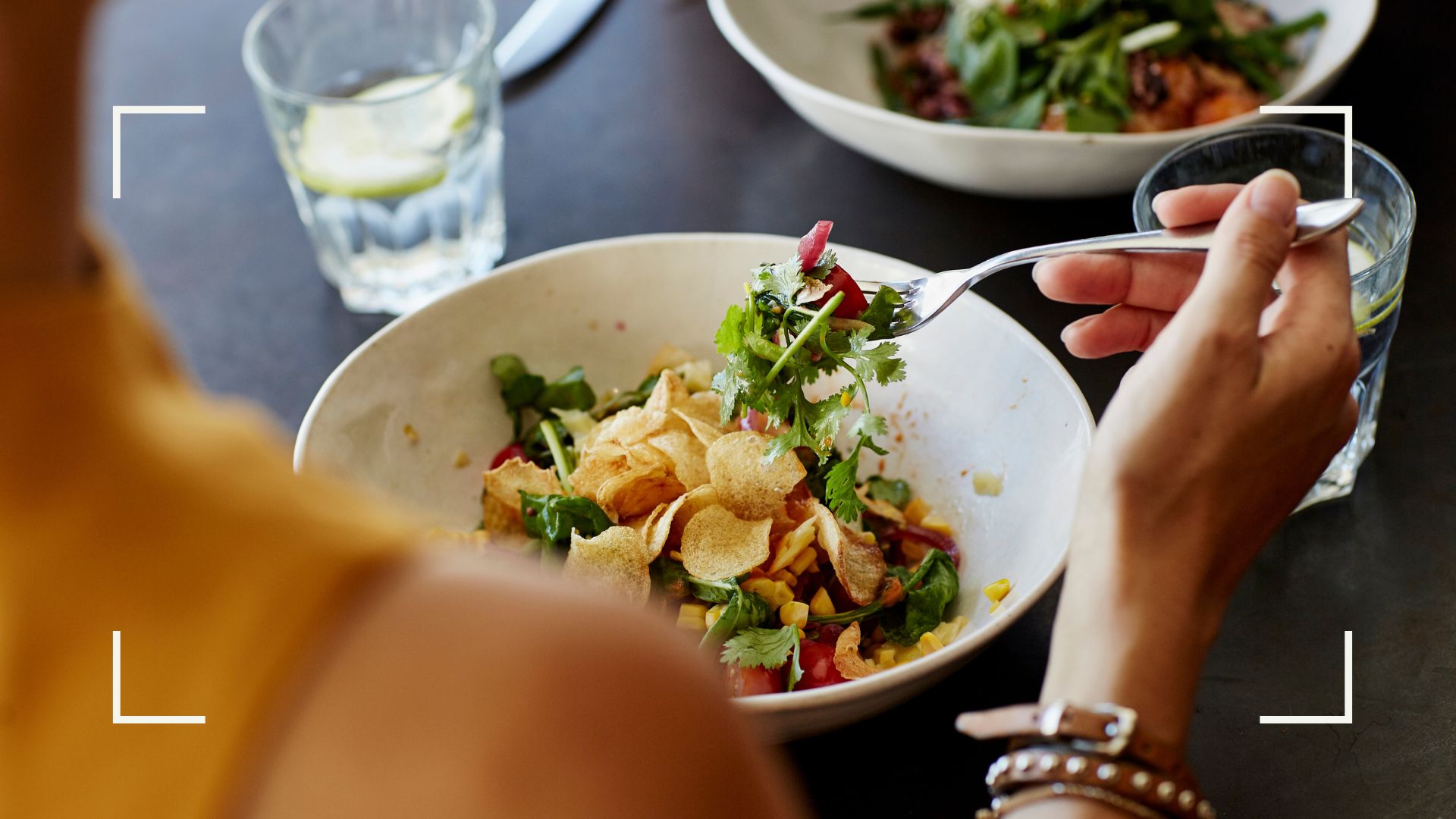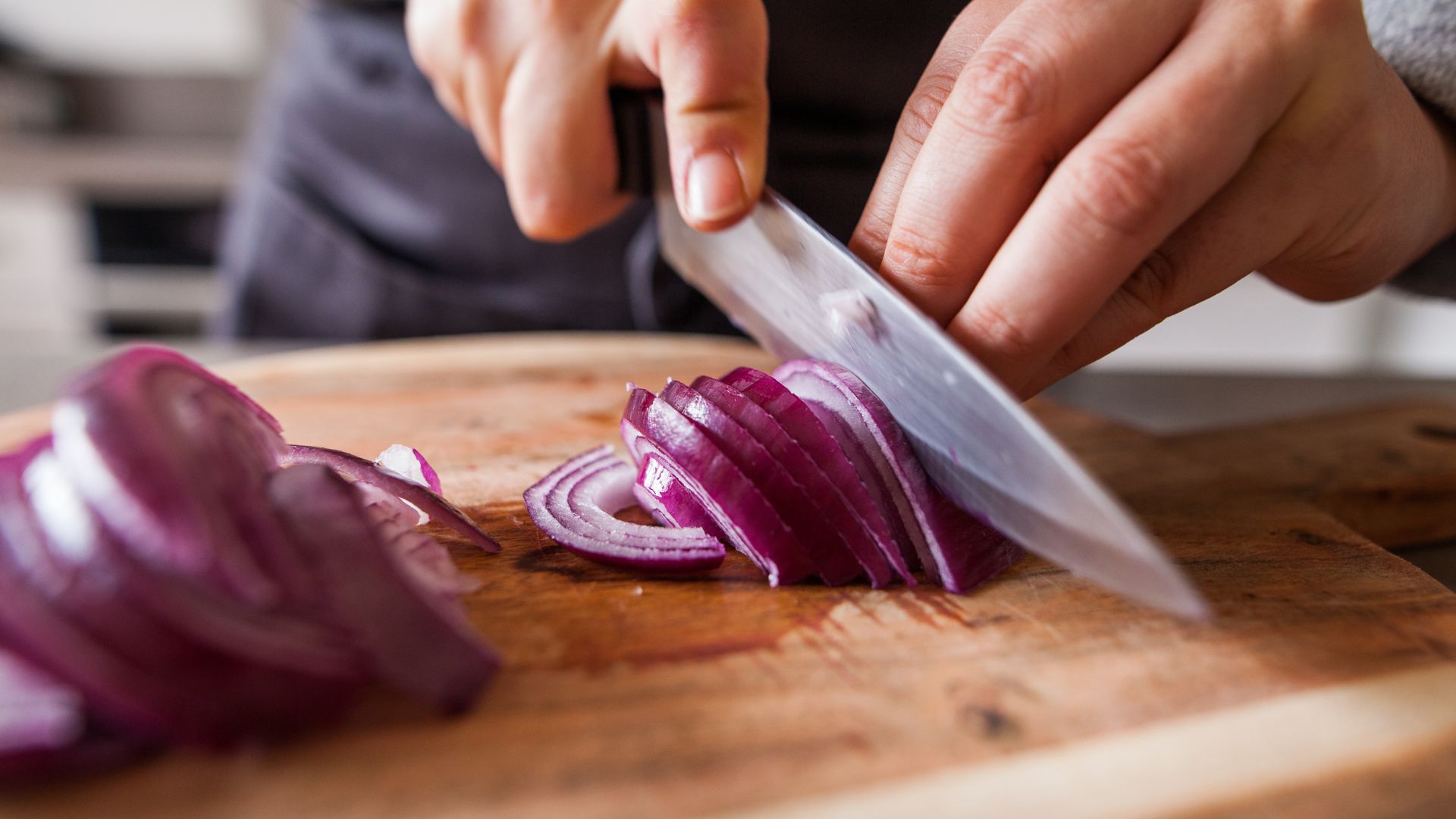Nutritionists reveal 5 surprising foods that cause bloating
You may be surprised by the list of foods that cause bloating as many of them are part of our everyday diets


Sign up to our free daily email for the latest royal and entertainment news, interesting opinion, expert advice on styling and beauty trends, and no-nonsense guides to the health and wellness questions you want answered.
You are now subscribed
Your newsletter sign-up was successful
Want to add more newsletters?

Daily (Mon-Sun)
woman&home Daily
Get all the latest beauty, fashion, home, health and wellbeing advice and trends, plus all the latest celebrity news and more.

Monthly
woman&home Royal Report
Get all the latest news from the Palace, including in-depth analysis, the best in royal fashion, and upcoming events from our royal experts.

Monthly
woman&home Book Club
Foster your love of reading with our all-new online book club, filled with editor picks, author insights and much more.

Monthly
woman&home Cosmic Report
Astrologer Kirsty Gallagher explores key astrological transits and themes, meditations, practices and crystals to help navigate the weeks ahead.
It's perfectly normal to experience a little light bloating after a big meal but there are some foods that cause discomfort more than others. In fact, some of the healthiest foods around, that we regularly eat, are among the top culprits for creating that all-too-familiar uncomfortable feeling.
While there are many causes of bloating to consider, including constipation, an undiagnosed food intolerance, coeliac disease, and irritable bowel syndrome (IBS), for many people the cause will be as simple as an ingredient in your salad or your choice of afternoon snack.
But which foods cause bloating more than others? Here, woman&home speaks to nutritionists and experts to reveal which foods cause bloating. As they sit among the best gut-healthy foods around and make up some dietary staples, you may have been eating them without even realising it.
The surprising foods that cause bloating
The basic rule is that foods with high FODMAP levels are likely to lead to an uncomfortable bloating feeling and potential stomach cramps, says Jess Suthard, personal trainer and nutrition specialist at Goal Plans, powered by MuscleFood.com.
FODMAP stands for fermentable oligosaccharides, disaccharides, monosaccharides, and polyols, and they are carbohydrates that the small intestine struggles to absorb.
FODMAP includes many foods that people eat every day and we know to be good for us though, notes Suthard. "They do provide many benefits but they could be troublesome for those with sensitive stomachs and digestive problems, including IBS."
These are some of the top foods that cause bloating, according to nutritionists and experts...
Sign up to our free daily email for the latest royal and entertainment news, interesting opinion, expert advice on styling and beauty trends, and no-nonsense guides to the health and wellness questions you want answered.

Jess is a personal trainer and nutritional consultant for members on the Goal Plans powered by MuscleFood plan. She has six years worth of experience working with clients and a stack of health and fitness qualifications.
1. Apples
An apple a day might keep the doctor away but it won't do the same for bloating, unfortunately, as it's one of the foods that cause bloating.
According to fitness experts at Goal Plans, apples can cause bloating because of their fibrous skin and fructose content, the naturally occurring sugar in the fruit. This sugar is particularly hard to break down in our intestines, causing many of us painful discomfort and gas, which are common symptoms of IBS.
2. Onions
Another one of the worst culprits when it comes to gas and bloating is the innocent-seeming onion. Unfortunately for us, onions contain a lot of sulphur compounds and fructans, a carbohydrate that pulls in large amounts of water in the colon when fermenting in the stomach. Both of these are troublesome to break down and absorb.
However, there is a way to lessen the blow without totally avoiding this veggie staple, explains the fitness experts at Goal Plans, and that is to thoroughly cook any onions you're going to eat. The cooking process breaks down many of the compounds in onions so it's not as much work for the body to digest.

3. Wheat
This may or may not come as a shock, but our beloved bread and other wheat products are terrible triggers for bloating. If you find eating wheat-based products causes you significant discomfort and pain, it's a good idea to check with a doctor about the possibility of coeliac disease.
Unfortunately, wheat is in several foods we eat daily so it's one of the most common bloated stomach causes. Speaking to Dr Lucy Williamson, an award-winning nutritionist and specialist in gut health, she says it's not just a matter of gluten intolerance when it comes to wheat.
"Often assumed to be an insensitivity to gluten in wheat, it’s more likely to be the monoculture of yeast in industrially produced bread that's the problem as it continues to ferment inside you after eating it causing wind and bloating," she explains.
Instead, Dr Williamson recommends eating sourdough with no artificial yeast as this will be less likely to cause upset.

After 15 years of working as a vet, Dr Williamson discovered her interest of human nutrition and attended Kings College in London and a year later qualified as a registered Nutritionist.
4. Lentils
Although lentils are a great source of fibre and vegan protein for those following a plant-based lifestyle, they can be quite triggering for those with more sensitive stomachs. All that fibre is beneficial but lentils (along with beans and pulses) can cause too much activity in our bodies, leading to painful gas and bloating.
If you do have lentils as part of your regular diet, it might be why you're regularly bloating, so it's best to eat them in smaller amounts where possible.
5. Fruit juices
The fruits strike again! Perhaps you've always believed fresh fruit juice to be helpful with digestive problems as it's been known to help some people with constipation. However, having too much juice can have the opposite effect.
"Fruit juices are low in FODMAP levels but their high levels of sugar and acidity paired with their low levels of fibre make them harder to digest," explains the fitness experts at Goal Plan. "Juices made from fruits with natural sugars such as apples and grapes can be the hardest to digest."

How to get rid of bloating fast
- Walking: Whether you can start walking after dinner or get going first thing in the morning, taking a walk can be both immediate relief and a short-term solution to bloating. Suthard says, "Walking is an obvious quick fix that can help stimulate the digestive system and ease discomfort. It gets the bowels moving and can provide quick relief." For the same reason, experts recommend regular exercise to improve gut health in winter.
- Peppermint tea: "This tea is known for aiding digestive issues by helping our muscles relax in our gastrointestinal tract. The menthol in the drink soothes the stomach around an hour after drinking," explains Suthard. It's the perfect pre-sleep tea too as it's naturally caffeine-free.
- Child's pose: Much like walking, doing yoga every day and incorporating certain stretches into your daily routine can promote movement in the body, releasing gas and getting digestive systems functioning properly again. Suthard recommends Child's Pose for this reason. "This yoga move is great for stimulating the digestive system as it compresses the abdomen," she says.
- And for future prevention, keep a food diary: If you’re someone who struggles with bloating regularly, you may have already started taking notes on what foods seem to trigger your stomach and which ones keep you in the clear. If not and you find yourself feeling bloated regularly, keeping a food diary can be a great way of doing this, making it easy to pinpoint the problem points in your diet.

Emily joined woman&home as a staff writer after finishing her MA in Magazine Journalism from City University in 2023. After writing various health and news content, she now specialises in lifestyle, covering unique cleaning hacks, gardening how-tos, and everything to help your houseplants thrive.